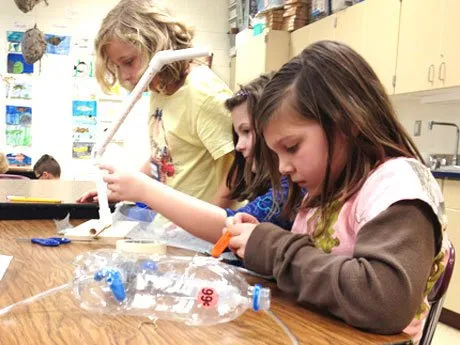Why I Don't Like Textbooks

Your best mind is the one that keeps asking questions until you get the quality of information you want.
Asking questions and solving problems is like an aerobic workout for the brain.

The top two scans here show a how much of the brain is used for our usual thought processes. This is simple recall of information. The bottom two brain scans show a brain working on a problem.
In the same way that physical activity increases physical ability, increased brain activity increases the brain's ability to learn.
So if you want to help develop a learning brain, it is important that your learning include inquiry.
Most school situations seek to simply fill a student's head with a litany of facts. Their usual tactic to accomplish this is a lecture or reading assignment, followed by some type of assessment in the form of questions on a worksheet or test. Unfortunately, this doesn't allow for much opportunity to question or solve.
We need to flip it. Instead of giving the students all the answers first and then giving them the questions, they need the questions first.
In the best scenario, we should let the students come up with their own questions. Then we give them the opportunity to seek out the answers on their own. By working to find the answers and to solve problems, the brain is more fully activated. More than just learning the information itself, they also have a better chance to increase their brain power as they do so and the information is remembered for longer.
What's great is that kids really like this approach. They like to be in the driver's seat. Most students would prefer to go on an information-seeking adventure than to have the information spoon-fed to them. Why? Dynamic learning feels good. In this way, healthy learning patterns are created and students can be better prepared to be information-finders and problem solvers as adults.
Give their brains a chance to grow!
At Celebration Education, we introduce exciting topics to the students through fun activities. The purpose is to spark interest in a topic. Then the students take it from there. They read books, do projects, and perform experiments as much as they like!




















